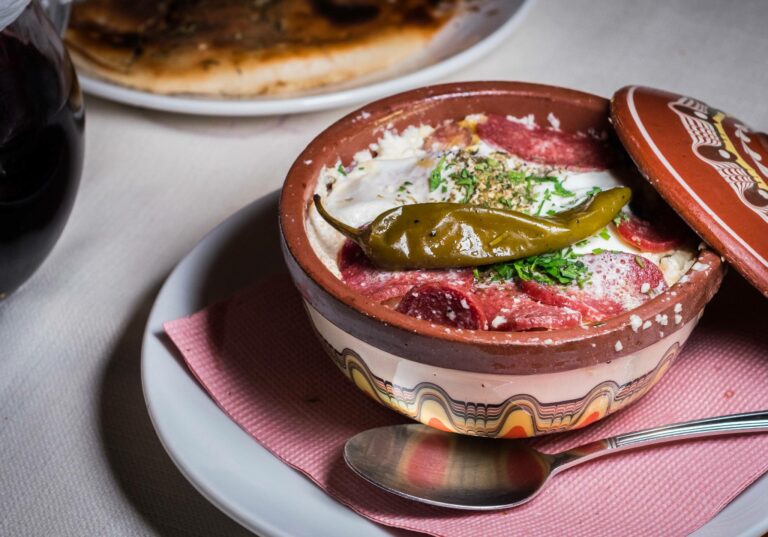Introduction: Exploring Bulgarian Cuisine
Bulgarian cuisine is known for its distinct flavors and rich cultural heritage, influenced by a variety of cultures, including Turkish, Greek, and Slavic. The food is typically fresh, hearty, and flavorful, with a focus on locally sourced ingredients. Bulgarian cuisine features a wide range of dishes, from hearty stews and grilled meats to refreshing salads and sweet pastries.
The Role of Spices in Bulgarian Cooking
Spices play a vital role in Bulgarian cuisine, adding depth and complexity to many dishes. They are used to enhance the natural flavors of ingredients, rather than overpowering them. Bulgarian spices are typically mild or moderately spicy, and are used in combination to create unique flavor profiles. The use of spices in Bulgarian cuisine can be traced back to the Ottoman Empire, which ruled over Bulgaria for several centuries and introduced many new ingredients and cooking techniques.
Traditional Bulgarian Spices and Seasonings
Some of the most commonly used spices in Bulgarian cuisine include paprika, cumin, dill, parsley, and mint. Paprika, in particular, is a staple in Bulgarian cooking and is used in many dishes to add color as well as flavor. Cumin is also widely used, particularly in meat dishes, while dill and parsley are commonly used in salads and vegetable dishes. Other popular seasonings include garlic, onion, and lemon juice.
Heat Levels in Bulgarian Dishes
While Bulgarian cuisine is not typically known for being spicy, some dishes do pack a bit of heat. The level of spice in Bulgarian dishes can vary depending on the region and the individual recipe. Many dishes are mildly spiced, while others are more boldly flavored. Some of the spicier dishes in Bulgarian cuisine include sarmi (stuffed vine leaves), kyufte (meatballs), and chorba (soup).
Regional Variations in Bulgarian Cuisine
Bulgarian cuisine varies widely depending on the region, with different regions having their own unique dishes and cooking styles. The cuisine of the Black Sea region, for example, is known for its seafood dishes and use of spices like cumin and paprika. In contrast, the cuisine of the Rhodope Mountains is characterized by hearty stews and grilled meats, with a focus on local herbs and spices.
Non-Spicy Bulgarian Dishes
Despite the use of spices in Bulgarian cuisine, there are many dishes that are not spicy at all. Bulgarian salads, for example, are typically refreshing and light, often featuring tomatoes, cucumbers, and feta cheese. Other non-spicy dishes include banitsa (a type of pastry filled with cheese), moussaka (a baked dish with layers of potatoes, meat, and vegetables), and shopska salad (a blend of tomatoes, cucumbers, and onions).
Adjusting Heat to Personal Taste
As with any cuisine, the level of spiciness in Bulgarian dishes can be adjusted to suit individual tastes. If you prefer milder flavors, you can simply reduce the amount of spice used in a recipe or choose dishes that are traditionally less spicy. On the other hand, if you enjoy bold and spicy flavors, you can experiment with adding more spice to your dishes.
Conclusion: The Flavorful Diversity of Bulgarian Cuisine
In conclusion, Bulgarian cuisine is a diverse and flavorful cuisine that incorporates a wide range of ingredients and spices. While it is not typically known for being spicy, there are many dishes that pack a bit of heat. Whether you prefer mild or bold flavors, there is something for everyone to enjoy in Bulgarian cuisine.

